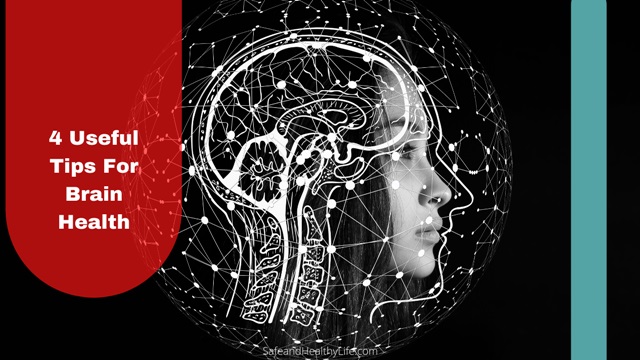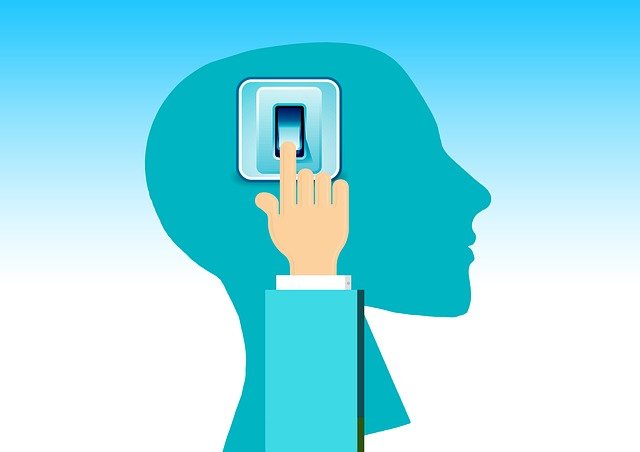
The brain is one of the most important organs in the human body, responsible for every thought we feel and every action we carry out.
It’s your own personal command center, collecting and collating information through a complicated labyrinth of neurons and sending out signals throughout the body to keep a multitude of functions and feelings flowing smoothly.
It’s only logical, therefore, that people are recommended to do all they can to keep their brains as healthy as possible.
As we get older, the brain begins to shrink and becomes more susceptible to various kinds of illness, disease, and damage, but there are things we can do to protect it, giving ourselves a fighting chance of enjoying a happy, healthy brain well into our old age.
1. Train Your Brain

Photo Credit: Pixabay
One way to promote good brain health is to think of your brain like a muscle; when we want to keep a muscle strong and lean, we exercise it.
The same logic applies to the brain; in order to keep it fit, active, and healthy, we need to use it often, and many studies have shown that things like puzzles, crosswords, and even video games can help to keep the brain healthy.
Sitting around watching TV all day and never challenging your brain can lead to it degrading more easily as you get older, so try to work some brain training into your weekly schedule.
This can come in many forms, from reading books to putting complicated 1000-piece jigsaw puzzles together.
2. Exercise Regularly

Photo Credit: Pexels
Most people know and understand that regular exercise is an essential part of any healthy lifestyle, but you might not be aware of just how beneficial working out can be for your brain.
Hitting the gym or jogging around the block isn’t just useful for burning off some calories and building up your muscles; it really can make a big difference to your brain too.
Studies have shown that brain health and heart health are strongly connected. By strengthening the heart through regular exercise, the brain’s health will also improve.
Exercise has also been linked with the release of soothing brain chemicals like serotonin, and people who exercise regularly also tend to lead healthier lifestyles overall and eat brain-boosting foods like legumes, grains, and more.
3. Always Wear Protective Gear

Photo Credit: Unsplash
Compared to other organs, the brain actually has quite a lot of natural protection. It’s surrounded by the skull, one of the toughest bones in the body, as well as several membranes and layers of fluid.
However, if you find yourself in an auto accident or suffer a nasty hit while out on the football field, all of that natural protection will do little to keep your brain safe.
Over 13 million Americans currently live with a TBI or traumatic brain injury, and many of these injuries occur in situations where the damage might have been reduced with the aid of a helmet.
If you’re doing anything that might put your head at risk, like riding a motorcycle or playing a contact sport, always be sure to wear a helmet.
4. Get Plenty of Sleep

Photo Credit: Pexels
One of the most important things you can do for your brain is to make sure you stick to a proper sleep schedule and get the recommended 7/8 hours of sleep each night that your body needs.
This can be difficult, of course, and tens of millions of Americans suffer from some kind of sleep disorder that can make it quite a challenge for them to get a good night’s rest.
However, you don’t have to suffer in silence and there are plenty of things you can do to improve your odds of drifting off peacefully each night.
Some useful tips include buying a new mattress that’s better adapted for your body, doing more exercise to tire yourself out each day, trying yoga or meditation, and reading books before bedtime rather than looking at screens to relax your mind, and even trying something like a soothing herbal tea in the evening to ease your mind.
Conclusion
Your brain does a lot of work each day, and it needs to be treated with respect and care in order to carry on functioning normally as you get older.
It’s normal for brains to degrade and not be quite as sharp as they once were with age, but there are plenty of steps you can take to give your brain the best chance of feeling strong and youthful, even in your later years.
About The Author:
Susan Melony is a freelance writer, digital marketer, and entrepreneur based in Kansas City. She often travels while working, and is passionate about the digital nomad lifestyle.



![[Infographic] Healthy Activities For An Aging Brain Healthy Activities For An Aging Brain](https://www.safeandhealthylife.com/wp-content/uploads/2023/10/Healthy-Activities-For-An-Aging-Brain-1-150x150.webp)
